- Home
- slideshows
- miscellaneous
- Mattis says Pakistan is the world's most dangerous country. These 7 photos show why it's such a threat
Mattis says Pakistan is the world's most dangerous country. These 7 photos show why it's such a threat
A grave concern for US officials continues to be extremist groups in Pakistan that focus on sowing terror abroad.

Pakistan is home to a number of terror organizations focused on bringing down the Pakistani state and bringing about Sharia law in the country.
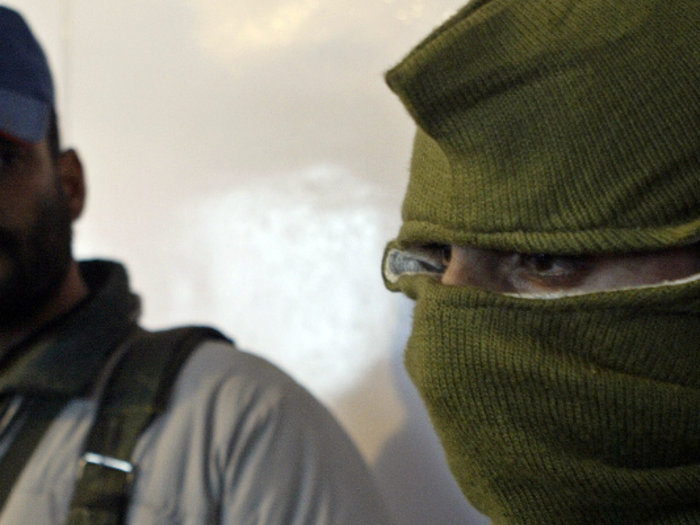
Lakshar-e-Janghvi is aimed at ridding Pakistan of Shia influence, killing Shia Muslims, and establishing a Sunni state in Pakistan, according to Stanford University's Center for International Security and Cooperation.
Jaish-e-Mohammed (JeM) aims to govern Pakistan according to Sharia law, and targets government and military forces with suicide attacks. It has also launched attacks in Afghanistan and India. It is presumed to be behind the attacks against Indian security forces in Kashmir earlier this year.
JeM is outlawed in Pakistan and twice attempted to assassinate former President Pervez Musharraf, Al Jazeera reports.
Pakistan's democracy is fragile.
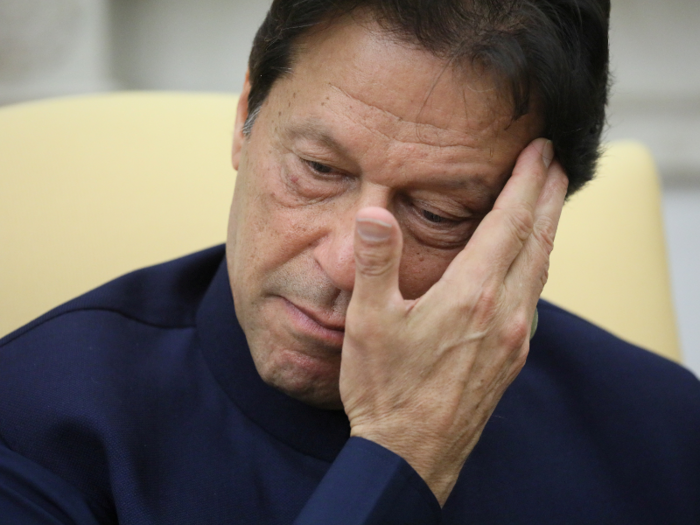
Pakistan's military and intelligence institutions have allowed militant groups like Barelvi Tehreek-i-Labaik Ya Rasool Allah to influence the government's actions according to the International Crisis Group.
After a Christian woman, Aasia Masih had her death sentence for blasphemy overturned by Pakistan's Supreme Court in 2018, Prime Minister Imran Khan's responded to violent protests by Barelvi Tehreek-i-Labaik Ya Rasool Allah by giving into their demands that Masih's overturned conviction be reconsidered, and declined to take action against or released members of the group responsible for violence.
Pakistan has also clamped down free expression, with the largest English-language newspaper being heavily censored there prior to last year's elections. Khan won those elections, but his opponents claimed there was widespread vote rigging.
Pakistan has a history of political instability, writes Madiha Afzahl in a Brookings policy brief. Only two governments have completed their five-year terms in Pakistan's 10-year history, and Pakistan's has swung back and forth between military government and civilian democracy, with military rule resulting in repression and civilian rule in a lack of delivery on its promises and disappointment for Pakistanis.
Pakistan sees all geopolitical decisions in the context of its conflict with India.
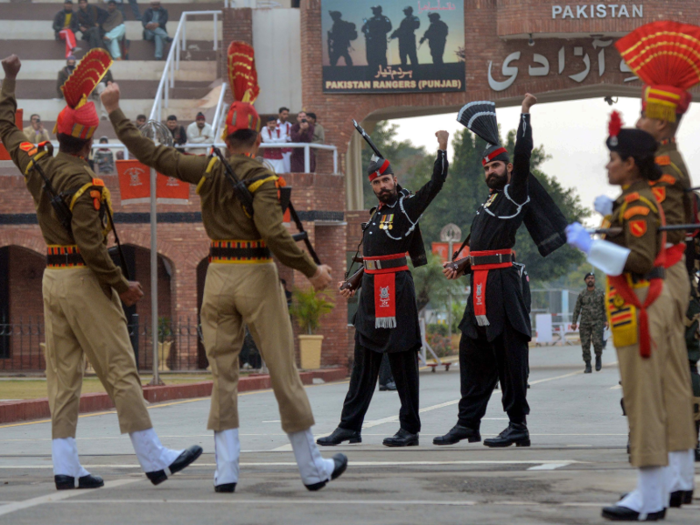
As Mattis outlines in "Call Sign Chaos," Pakistan understands all geopolitical decisions within the context of its incredibly tense relationship with India, which has resulted in decades of struggle and three wars between the two nations.
Pakistan supports militants like the Taliban in Afghanistan as a way to exercise some control over the country, steering it away from Indian influence but causing persistent terror and instability there.
Pakistan's nuclear program is one of the largest, and fastest-growing in the world. Many are concerned that its tensions with India could escalate into nuclear war or that the cache might fall into the wrong hands.
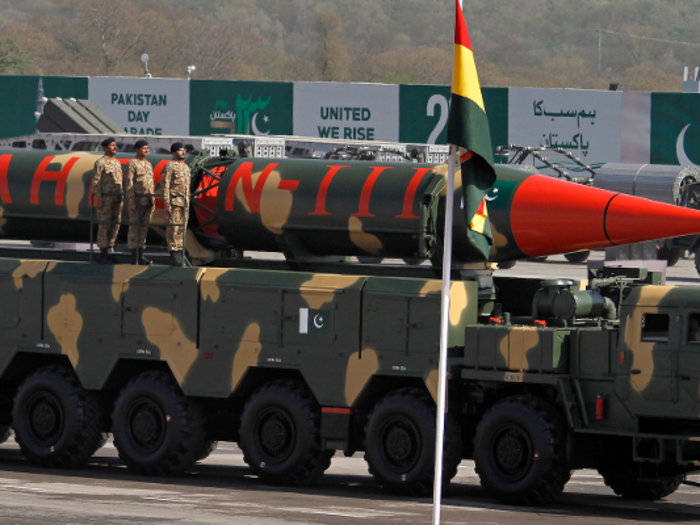
Nuclear-armed Pakistan is technically a US ally, but the United States has great concern over the fact that Pakistan and India, another nuclear-armed state, harbor such hatred toward each other and have fought multiple wars. What's more, neither has signed the Non-Proliferation Treaty of 1968, The Washington Post reports.
More recently, Pakistani military spokesperson Maj. Gen. Asif Ghafoor said that Pakistan does not adhere to a "no first-use" policy, causing an uproar on the subcontinent at a time when hostilities are incredibly high over India's bloody crackdown in Kashmir, a consistent source of tension between the two countries.
And, as Mattis points out in his book, questions about the security of Pakistan's arsenal persist. Not only could terror groups take advantage of political instability and gain control of the Pakistani state and its weapons, but extremist elements in tee Pakistani government, like LeT and the Pakistani Taliban, "aim to push Pakistani nuclear policy toward an Islamist and jihadist ideological framework," according to an article in Asian Securities by Sharad Joshi, an assistant professor of nonproliferation and terrorism studies in the Graduate School of International Policy and Management, at the Middlebury Institute of International Studies.
Pakistan has harbored al-Qaeda and Taliban militants, including Osama bin Laden.
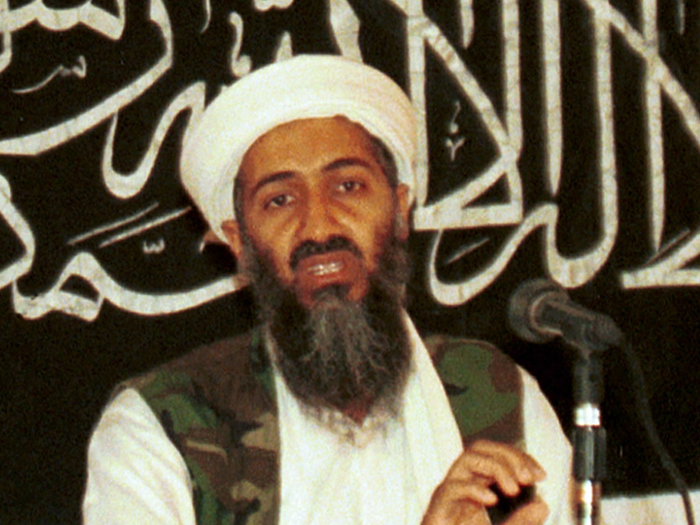
Pakistan has a habit of harboring extremists like Osama bin Laden, the al-Qaeda leader who planned the September 11, 2011 terror attacks in the US.
Navy SEALs raided bin Laden's compound in Abbottabad, Pakistan in 2011 and killed him after a 10-year manhunt.
And, as Vanda Felbab-Brown of the Brookings Institution points out, Pakistan harbors members of the Afghan Taliban and the Haqqani Network, and supported them materially to increase Afghan instability and steer Afghanistan away from seeking Indian support.
Another looming threat in the region is ISIS-Khorasan, or ISIS-K.
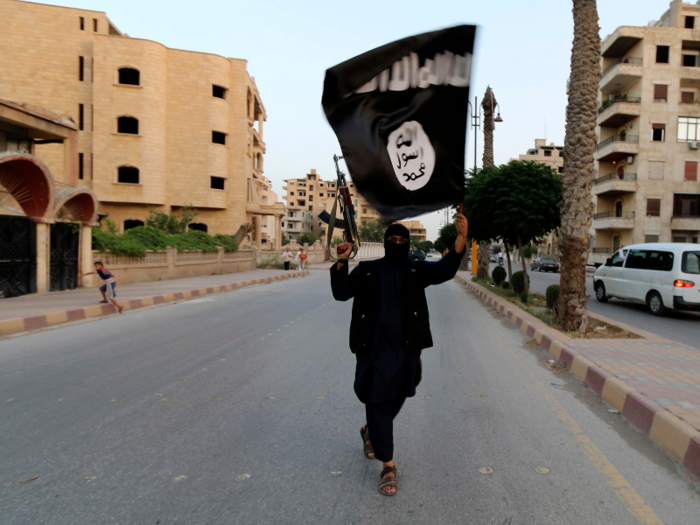
ISIS-K operates in Afghanistan, Pakistan, and parts of Iran. ISIS-K maintains relationships with a number of groups in Pakistan, which provide it with material, logistical, and ideological support.
ISIS-K "has a universe of relationships with other militant organisations across Afghanistan and Pakistan which provide it with ideological, logistical and operational support," according to Amira Jadoon, an assistant professor at the Combating Terrorism Center and the Department of Social Sciences at the U.S. Military Academy at West Point.
"For example, whole factions of the Tehrik-e-Taliban have defected to ISK as well as other groups like the Islamic Movement of Uzbekistan," Jadoon previously told Insider. "But in addition to these, lethal groups like Lashkar-e-Jhangvi, which have not publicly pledged allegiance to ISIS-K, have significantly boosted ISIS-K's operational capacity."
Popular Right Now
Popular Keywords
Advertisement